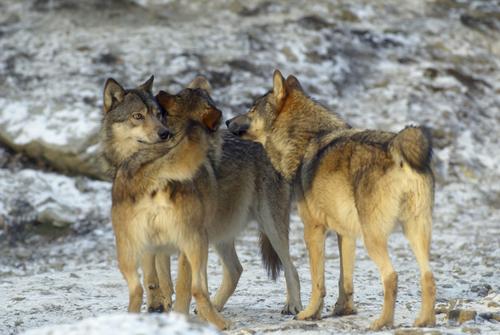As the European Commission contemplates a review of the conservation status of wolves, prompted by unfounded claims of harm to humans and livestock, EuroNatur and 300+ NGOs are sounding the alarm over the potential repercussions of such a decision.

The protected status of wolves at EU level is to be softened.
© Ditmar NillThe EU is considering stripping the wolf of its protection, a move that could pave the way for revisiting the Habitats Directive, a cornerstone of environmental regulations. This development raises profound concerns, as it risks unravelling crucial protections for the environment and wildlife.
The decision to review the protection of the wolf stems from assertions regarding the dangers posed to humans and livestock . These claims are not based on science: In Europe, the wolf is not considered to be dangerous for humans and damage to livestock is often linked to the lack of adequate supervision and/or physical protection. With tried and tested countermeasures such as fences and guard dogs, co-existence with wolves is possible. Reconsidering the protection status of the wolf will potential have implications for the EU's broader environmental framework.
If the conservation status is to be downgraded, the Habitats Directive, a vital legal instrument safeguarding habitats and species across Europe, could be subject to review. This prospect has raised red flags among conservationists, as any modifications to the directive could have far-reaching consequences for the delicate balance of Europe's ecosystems.
Today, EuroNatur and 300+ NGOs are sending an open letter to President von der Leyen demanding a decision on this issue solely based on reliable scientific data, adherence to existing legal protections for wolves, and promoting coexistence measures between wolves and local communities.
At the heart of the matter lies a fundamental commitment to biodiversity conservation and coexistence. Wolves play a vital role in maintaining ecosystem balance and biodiversity, representing considerable conservation success with their return to parts of Europe where the species had been previously extirpated. EuroNatur urges the Commission to prioritise science-based decision-making and responsible wildlife management to preserve Europe's natural heritage.


